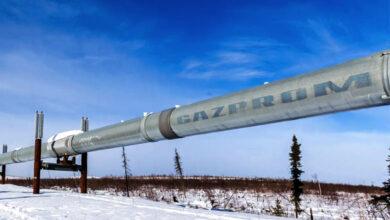Battle for minerals: West and China compete for resources

The world is clustering, and two large clusters – Western countries and China – are fiercely competing for raw material extraction markets. The US and the EU are trying to reduce their dependence on China for critical minerals, leading to increased competition for access to these resources
This competition involves investments in new facilities for the extraction and processing of minerals, as well as the creation of strategic partnerships with countries rich in these resources. For example, Central Asia has become a veritable Eldorado in this struggle because of its reserves of rare earth elements and other important minerals.
The growing demand for resources necessary to support the energy transition – the mainstream of the civilized world – will lead to the formation of a profitable and more stable market. In this context, the publication of the new financial network by the Minerals Security Partnership, a coalition of 14 countries and the European Commission, which will take place in New York on Monday, promises to be a trending event.
Financial Times reported, that this initiative is designed to strengthen international cooperation and financially support a large-scale nickel project in Tanzania, which is supported by the mining company BHP. It is one of the world’s largest mining companies that extracts and processes minerals: iron ore, copper, nickel, coal, etc.
What is the Minerals Security Partnership for?
MSP is an international initiative bringing together 14 countries and the EU to promote investment in the development of supply chains for critical minerals needed for clean energy technologies.
The MSP includes Australia, Canada, Estonia, Finland, France, Germany, India, Italy, Japan, Norway, South Korea, Sweden, the United Kingdom, the United States, and the EU. The international initiative supports projects that meet high standards of environmental, social and corporate governance.
Western countries are delegating their development finance and export credit agencies to work with private industry to support important mineral projects. This activity is designed to reduce China’s control over a sector important for high-tech industries.
In addition to a major nickel project in Tanzania, initiatives already supported by partner governments include programs related to the mining and processing of lithium, cobalt, manganese, graphite, rare earth elements and copper. These plans cover the entire value chain, from extraction and processing to recovery and recycling.
It is planned that representatives of BlackRock, Goldman Sachs, Citigroup, Rio Tinto and Anglo American will try to attract private investors and miners to invest in this sector. The MSP evaluates 30 important mining projects, after which Western governments want the raw materials needed to produce electric cars, advanced weapons and more.
Private investors believe that the surge in demand for raw materials needed to fuel the energy transition will create a profitable and more stable market. But for this, further support and public-private cooperation is needed to obtain a larger amount of capital.
Struggle to extract an economically important metal in Tanzania
The US International Development Finance Corporation is issuing a Letter of Interest to provide debt financing to a mining project in Tanzania that will loosen China and Indonesia’s control over nickel, a key component for battery production. The Kabanga nickel project is being developed by Isle of Man-based Lifezone Metals, which is 17% owned by BHP.
The project is a challenge to Chinese investment in Indonesia, which has transformed the nickel market, turning the Southeast Asian country into a monopoly with a 55% share of global production, also up from 16% in 2017.
Why nickel is critical for the European Union
In the context of the energy transition, nickel is expected to reduce the eurozone’s dependence on fossil fuels and optimize its transition to renewable energy sources. This transition metal is a key component in the production of lithium-ion batteries used in electric vehicles and energy storage systems.
After all, this metal allows the batteries to store more energy per unit of weight, which increases the range of the electric car. In addition, batteries with a high nickel content have a longer life, making them more cost-effective in the long run. The use of this chemical element reduces the dependence on cobalt, which is more expensive and less available. Nickel-cobalt-manganese and nickel-cobalt-aluminum batteries ensure stable operation and high safety.
Nickel is used in the production of stainless steel and other alloys for the aerospace, defense and other high-tech industries.
Control over the supply of nickel to reduce the EU’s dependence on imports from China or other countries that can use their resources as a political tool.
US-China relations: an eye for an eye
“What China is doing is following the instructions of a monopolist to crowd out competition,” commented the US Under Secretary of State for Economic Growth, who accused Beijing of “overproduction and predatory pricing”., to maintain control over the global supply of essential minerals. “We understand that we cannot solve this problem with any individual country, together we are stronger”, – he said in interview.
It is known that the two superpowers are involved in a trade war “an eye for an eye”, in which Washington limited the export of semiconductors, electric cars, solar batteries and other advanced technologies “made in China”. China responded by restricting the export of some minerals. In particular, antimony is a little-known metal used in armor-piercing ammunition and night vision sights.
Overall, Chinese companies control 9/10 of the world’s rare-earth metals processing capacity and most of the cobalt, nickel and lithium processing capacity used to produce batteries for electric vehicles.
It is worth noting that China has outpaced the West in critical mining projects thanks to subsidies, easier access to finance, better processing technologies, lower costs and a tolerance for more lenient environmental standards. But it is likely that the collective West will be able to counter this with its competitive advantages in the industry.
Tatyana Morarash





